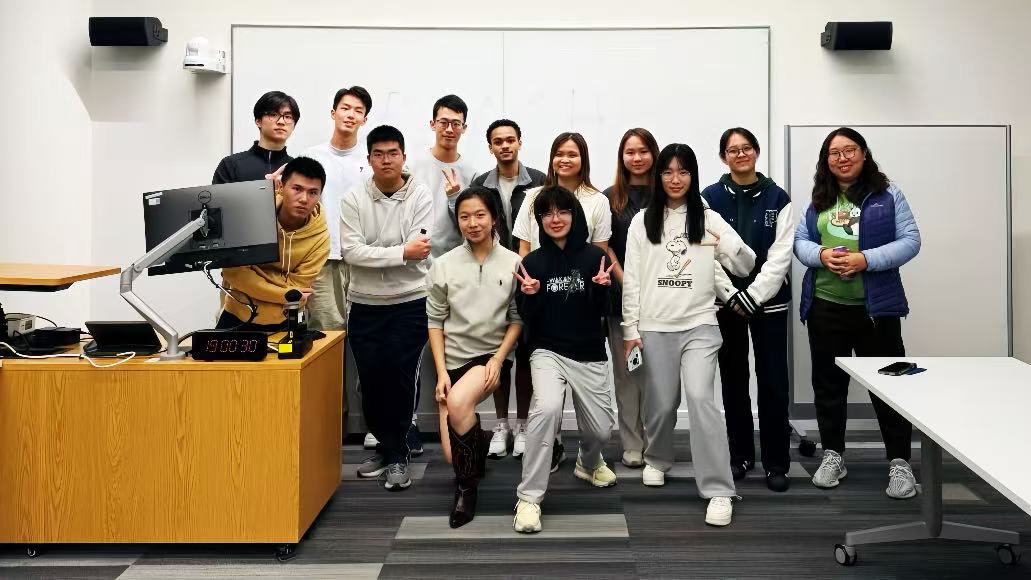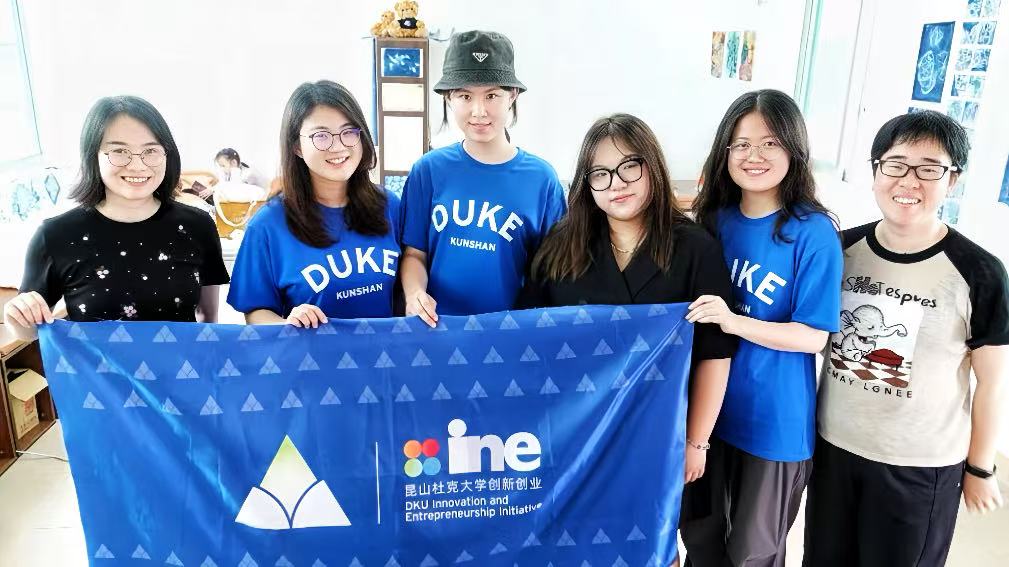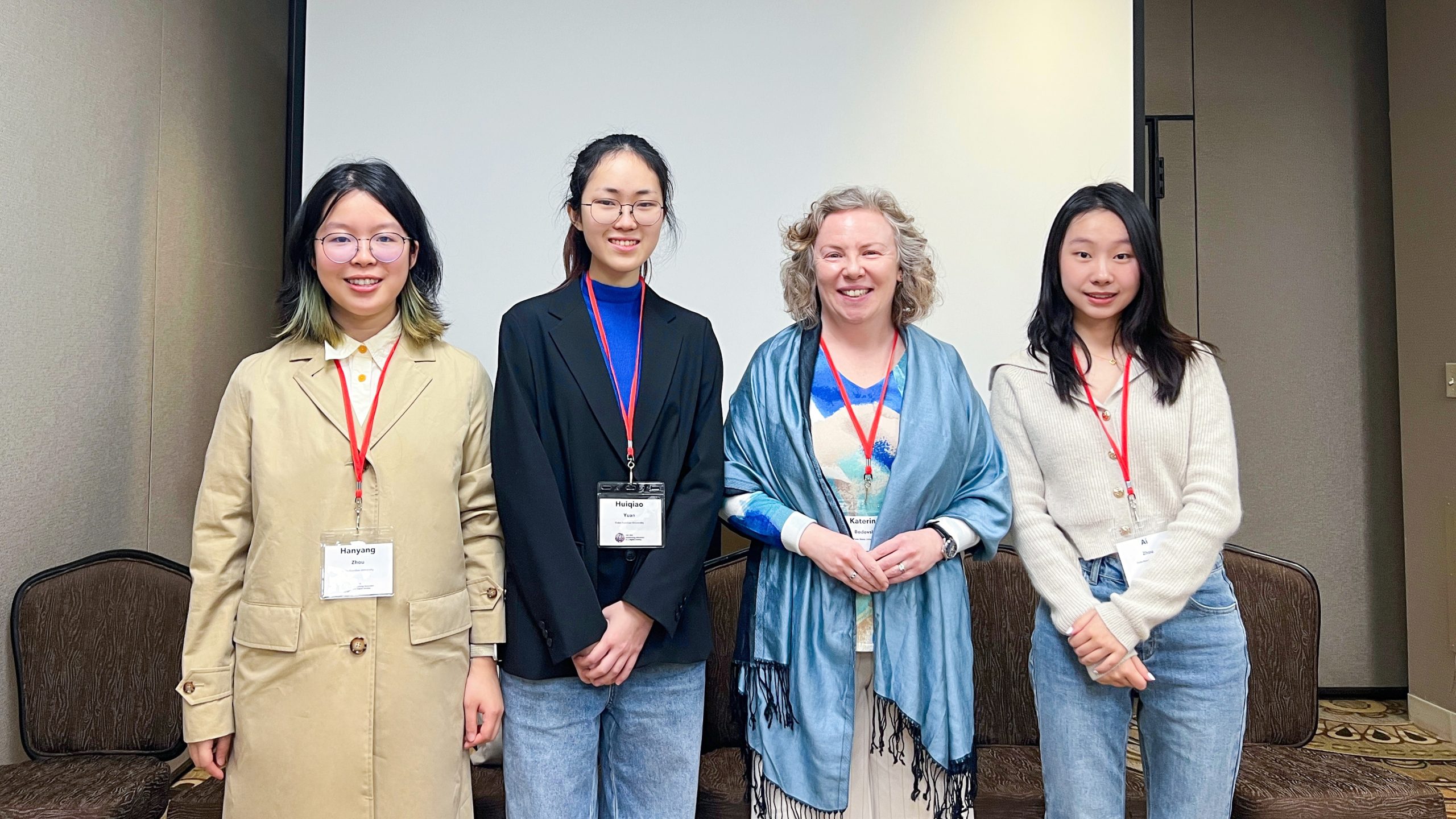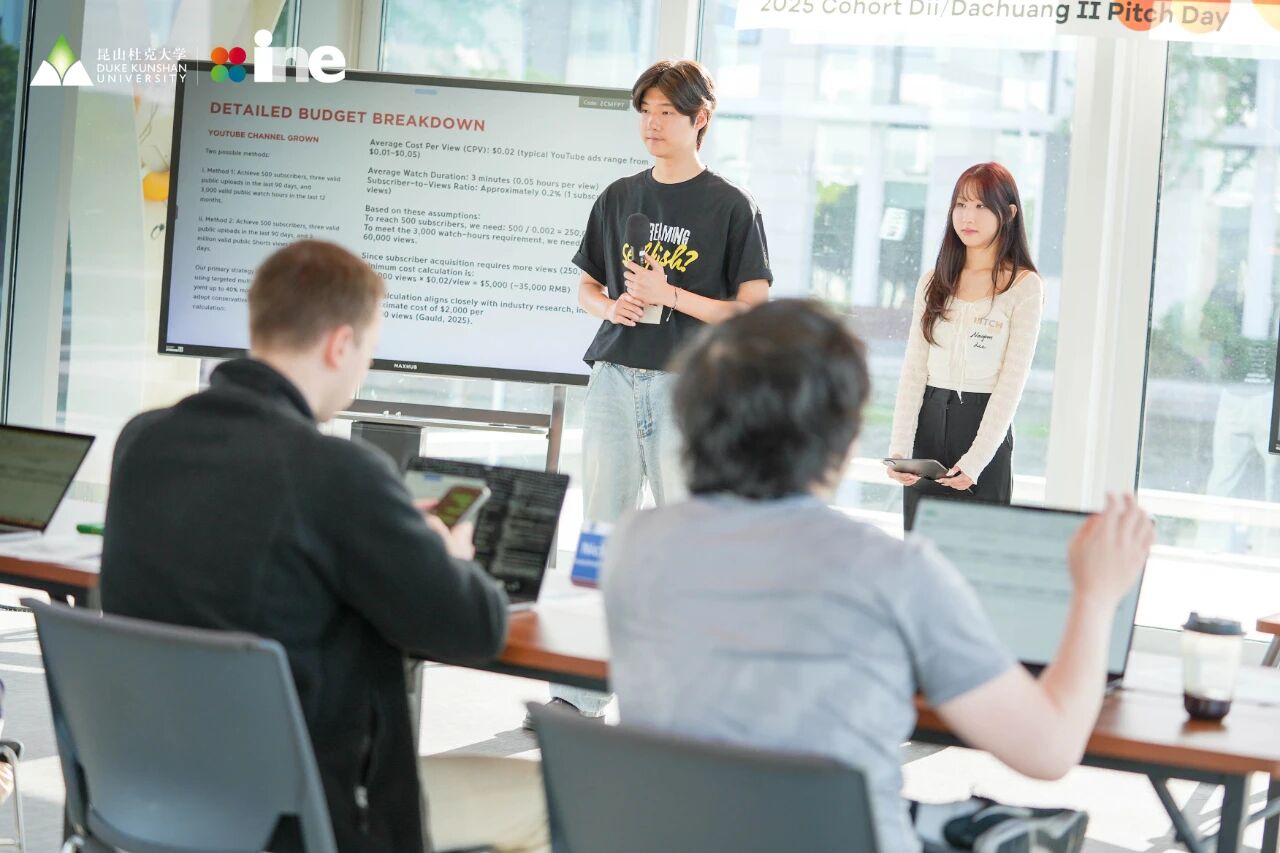In the era of globalization, how can we effectively position ourselves and chart a clear path for our future careers? As DKU students benefiting from the integration of both Chinese and international educational philosophies, how can we leverage this advantage to enhance our professional competence and become well-rounded talents? How can we fully utilize our skills and soft power to open the doors to top global enterprises, truly integrate into the international community, and become qualified global citizens? For those eager to secure high-paying, high-quality job opportunities on Wall Street during their undergraduate or graduate years, what steps should they take to prepare? In this ESS session, we were thrilled to have Nancy Chen share her invaluable insights and unravel the secrets of job-seeking skills.
Nancy currently serves as the Managing Director of Jurastone Capital Partners, a Wall Street fund based in the United States. She boasts over a decade of experience in Wall Street mergers and acquisitions management consulting at internationally renowned companies such as Deloitte, Ernst & Young (EY), PIMCO, and SONY, where she worked at their headquarters. Simultaneously, she is the founder of New York Bamboo, a career coaching and consulting service, which she highly acclaims as a career strategist and top-notch professional coach.
Simultaneously, Nancy is dedicated to the field of education. Serving as a guest professor at Wuhan University, she also holds the position of Overseas Special Consultant Expert for Hainan Free Trade Port, offering financial and strategic advice to government departments. Renowned institutions such as Columbia University, New York University, Peking University, and others have invited Nancy to deliver lectures, sharing her unique insights and experiences in both academia and industry.
#01 Strategies and Insights for Smart Job Seekers
Before embarking on the search for a suitable job, a crucial step is to conduct industry research, which can help streamline the job-seeking process. Regarding the current job market in the USA, statistics indicate that 47% of graduates are applying to more jobs due to economic news, 36% are expanding their job search to encompass various industries, companies, and roles, and 71% are open to relocating to a different city for the right job opportunity.
When screening your preferred job, pay attention to the 2023 job market trends and details about the positions. Don’t forget to thoroughly read the job description. Focus on the company culture, values, typical roles in your desired field, required technical and soft skills, the average salary for your targeted positions, and industry-standard software or tools. Gathering information about companies and positions is one aspect of navigating the job market. What’s more crucial is exploring and enhancing your own abilities. Using the Golden Triangle Model, analyze your qualifications based on passion, social needs, and strengths. Additionally, leverage the MBTI personality test to assess strengths and weaknesses, aiding you in showcasing and improving them during the application process.
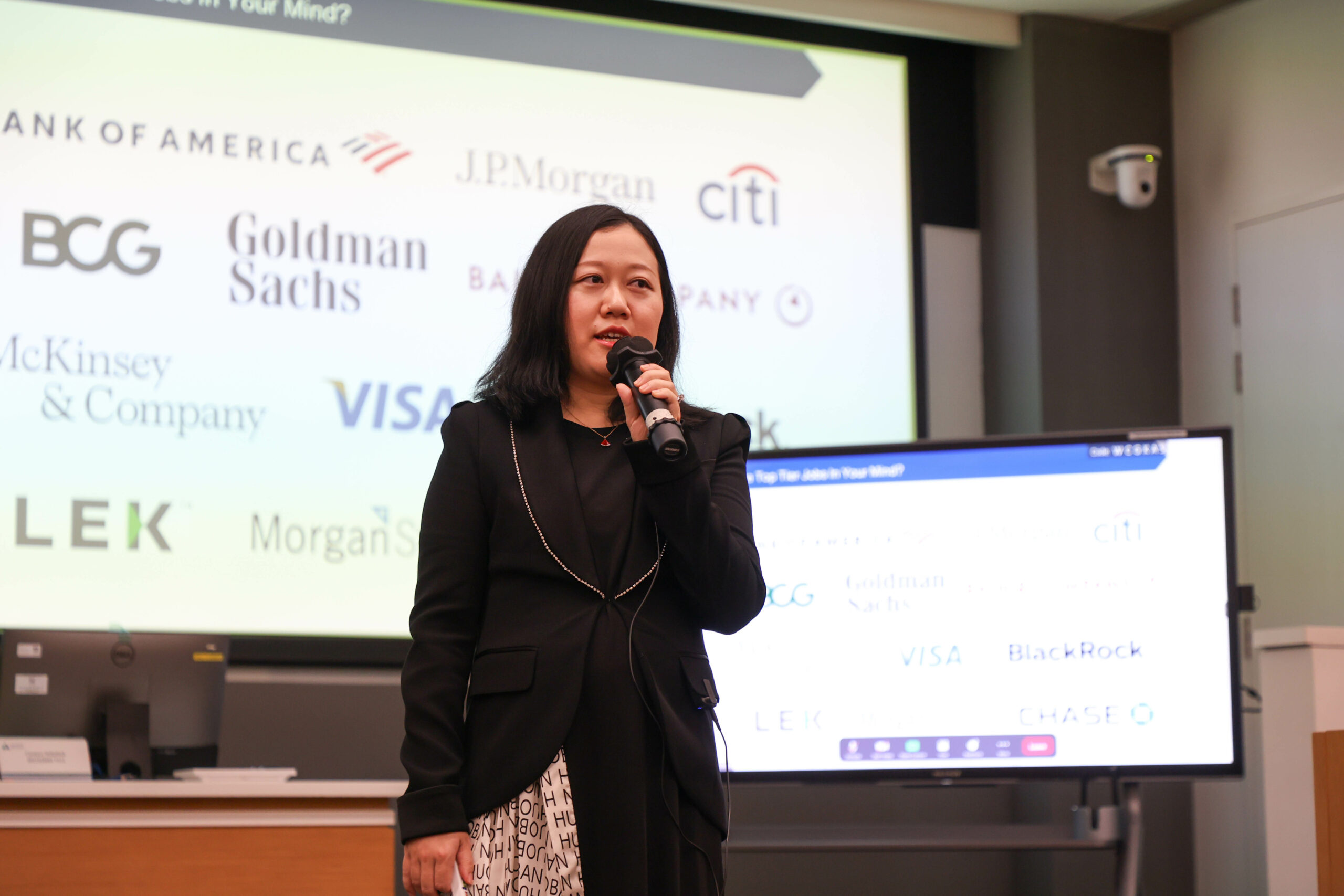
#02 How to Act Proactively and Intelligently in a Competitive Climate
To better support our students in achieving success and avoiding mistakes throughout the job application process, Nancy has compiled a list of dos and don’ts for each stage of recruitment.
When building a RESUME:
01 Dos:
- Be consistent in format and content;
- Make it easy to read and follow, balancing white space;
- Use consistent spacing, bold, and capitalization for emphasis;
- List headings (such as Experience) in order of importance;
- Within headings, list information in reverse chronological order (most recent first);
- Avoid information gaps such as a missing summer;
- Be sure that your formatting is translated properly or converted to a PDF.
02 Don’ts:
- Use personal pronouns (such as I);
- Abbreviate;
- Use a narrative style;
- Number or letter categories;
- Use slang or colloquialisms;
- Include a picture;
- Include age or sex;
- List references;
- Start each line with a date.
When preparing for an INTERVIEW:
01 In-person:
- Research the company extensively;
- Review Job Description;
- Brainstorm your strengths;
- Arrive on time;
- Dress appropriately.
02 Virtual:
- Clear away things that distract you;
- The background should be clean and tidy;
- Conduct a network test beforehand to ensure sufficient connectivity;
- Prepare at least one backup plan;
- Dress appropriately.
During the INTERVIEW:
01 Dos:
- Greet your interviewer with a firm handshake and a smile;
- Be assertive and proud of your accomplishments but not overconfident;
- Present yourself in the best way possible but still be yourself;
- Keep in mind that you and the hiring manager are both looking for the “right match”;
- Thank the interviewer for their time.
02 Don’ts:
- Answer with a simple “yes” or “no”;
- Exaggerate your answers or be truthful and direct;
- Make derogatory comments about previous employers or managers;
- Ask questions about compensation, benefits, or PTO too early.
#03 Long-Term Career Planning
Long-term goals are significant milestones that you aim to achieve over an extended period, rather than immediately. These goals ensure that your current activities are aligned to contribute toward their accomplishment. Zhuzi outlines four factors for long-term planning.
01 Motivation:
- Internal vs External.
- What matters to you? What inspires you?
- When do I feel most proud?
- Which projects do I enjoy working on?
02 Skills:
- Hard skills, soft skills, and leadership experiences;
- Find your mentor and support group;
- Set some time outside your regular job.
03 Personal and Professional Growth:
- Networking;
- Certificate & higher education;
- Conference & educational webinar.
04 Long-Term vs. Short-Term:
- Break up your long-term goal into small, achievable short-term goals;
- Celebrate all the small wins;
- Adjust your goal if necessary.
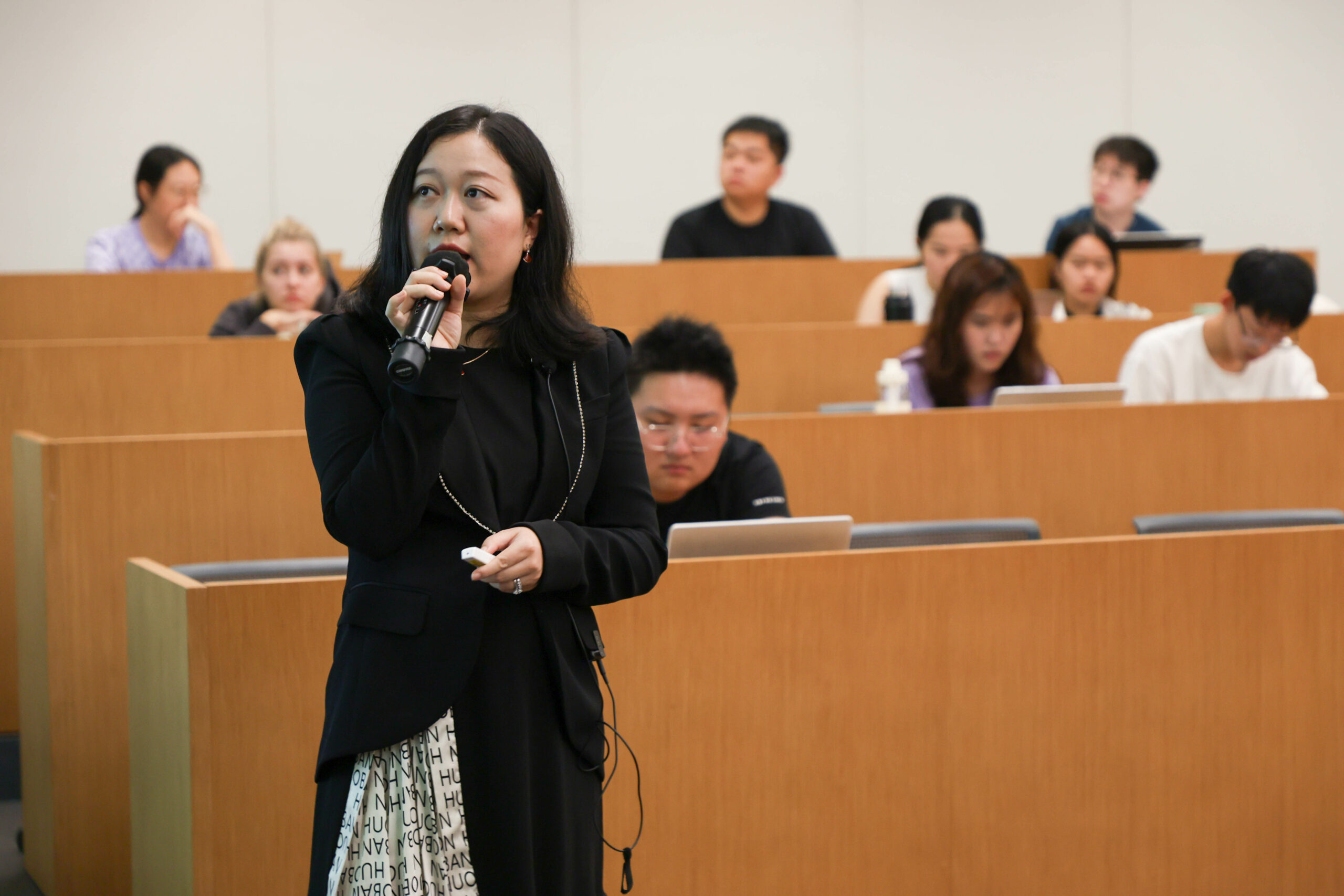
#04 SMART Goals
Nancy also provided SMART goals for students in their long-term career planning: Specific, Measurable, Achievable, Relevant, and Time-bound:
01 Specific:
- Are my goals precise?
- What outcomes do I aim to achieve?
- What strategies should I follow?
02 Measurable:
- Can I measure the success of my goals through quantity or quality?
- What criteria should I follow to track my goal achievement progress?
- How will I know if significant progress has occurred?
03 Achievable:
- Are my goals doable given the time and resources I have?
- How can my mentor or friends support me in achieving my goals?
- Do my goals allow me to challenge my ability?
04 Relevant:
- Can my goal contribute to my personal growth?
- What does this goal mean to me?
- How can it support my overall success?
05 Time-bound:
- Is there an optimal deadline for the attainment of this goal?
- Is the target date in line with the quality of the goal rather than just for the sake of it being attained?
- Is the timeline feasible?
Examples of using SMART goals:
01 Career Search and Decision
Too generic: I will figure out what I want my next job to be by the end of next month.
SMART Goal: I will complete at least one career discovery task every week for the next 20 weeks that will help me find a career path that will develop my strengths, align with my desire to generate more income, be on a team that I enjoy working with, and have responsibilities that align with my long-term goal.
02 Leadership Development Planning
Too generic: I want to be seen as a leader in my company.
SMART Goal: By the end of the year, I will build my leadership skills by immersing myself in new scenarios where I will develop in specific areas of cross-cultural collaboration, strategic planning, and influencing – and have at least 3 people more senior than me within my organization who recognize my growth as a leader.
03 Professional Development Planning
Too generic: I want to get better at data science to secure my job at my company.
SMART Goal: I will identify my biggest growth shortfall as an individual contributor to the field of data science and hone my skills to a level where, by the end of 2023, people at my company recognize me as an expert in this field and consider me as a resource to see how data science can help them make a bigger impact.
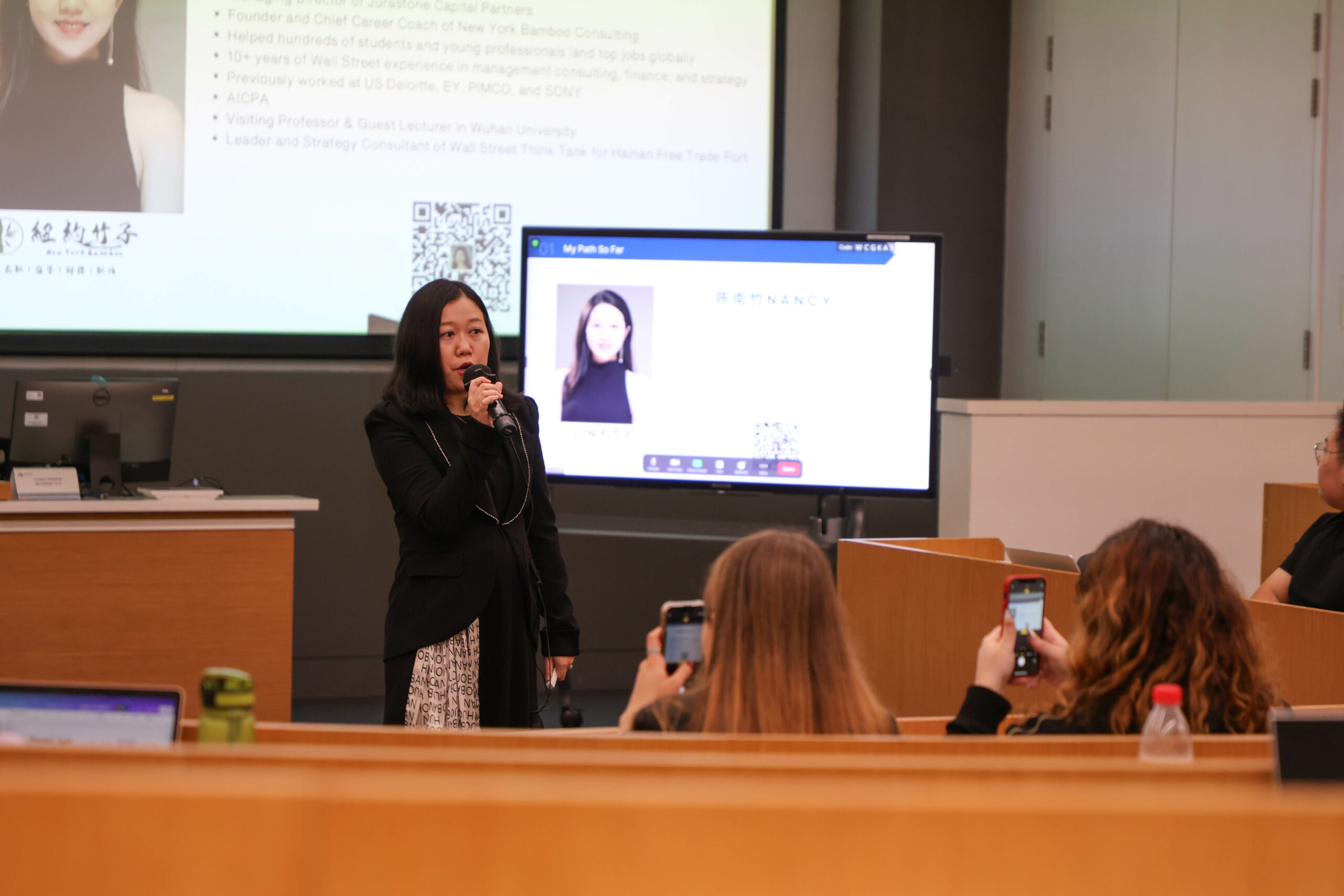
At the end of the session, Nancy gave sincere suggestions to the students who are searching or will search for their preferred career path:
“Embarking on your career journey celebrates your years of hard work and dedication; trust that the right opportunity is out there waiting for you; your potential is boundless; the world awaits your valuable contributions; every application is a step closer to finding your unique professional niche; a myriad of job offers stands ready, eagerly anticipating the unmatched brilliance you bring to the table”.
We hope that every student can ace the job application process and enjoy their unique future career path!

